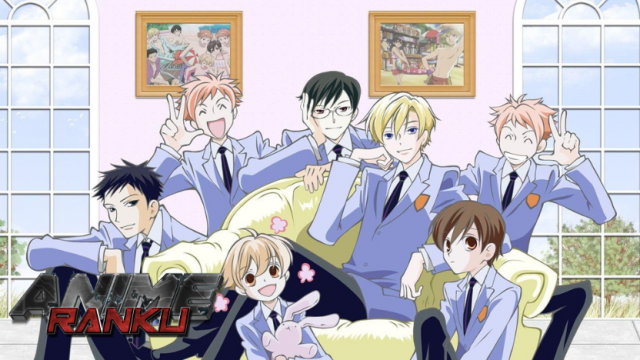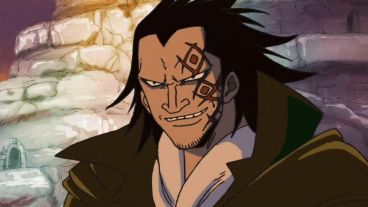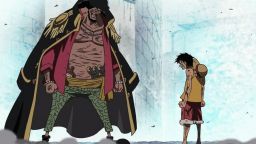When Ouran High School Host Club first aired in 2006, it might have been mistaken for another shojo anime with a heroine surrounded by attractive boys. Ouran High School Host Club is currently deserving of cult classic status, as evidenced by the fact that it is still accessible on Crunchyroll and Netflix, that its author continues to be invited to anime conventions, and that articles are consistently written about it even 16 years after the show first aired. Fans are clamoring for a continuation of the adored tale of Haruhi and her friends, and rumors of a second season have hardly subsided.
Is it worthwhile to watch an anime from nearly two decades ago in a market overrun with content where dozens of anime are released each year? One only has so much time to watch television, and there is a lot of shojo series available. The reverse-harem genre sees an increase in entries every year, most recently the excellent Romantic Killer. Ouran High School Host Club, however, is not your typical anime. The show, which was intended to be a parody of the shojo series, excels at character development, engages in a lighthearted yet serious examination of gender norms, and conducts an in-depth examination of the value of friendship that surpasses that of some more recent anime.
Ouran High School Host Club Was Innovative For The Time.

The main character of Ouran High School Host Club, Haruhi, served as a breath of fresh air in 2006, when Misa Amane from Death Note personified the worst stereotypes of female characterization. Haruhi was a girl who dressed like a man because she wanted to and didn't give a damn if people called her a man or a woman. She was unintentionally ahead of the trend. It has been stated previously: despite the lack of a label -- possibly due to the absence of one at the time, at least in popular language -- Haruhi may be one of the first non-binary characters in anime. She also possesses other qualities that are frequently lacking in anime women, such as intelligence, responsibility, strength, and confidence.
The character of Haruhi isn't the only one that represents queer people, either. Her father, a professional cross-dresser, is always attempting to uphold the honor of his position. Unquestionably included for comedic effects, like all of the characters in Ouran High School Host Club, he is more than just that; in addition to being a devoted father and devoted husband, he also engages in cross-dressing. Similarly, it's not just for laughs when it comes to the girls from Lobelia Academy, a contemporary parody of a Sapphic school. The boys from Ouran dress as women at the end of the first episode which features them in an effort to win Haruhi's approval. One could argue that they make this decision not to mock their rivals but rather to acknowledge the value of Lobelia's viewpoint and the need for improvement in order to earn Haruhi's affection.
Ouran High School Host Club Is a Highly Empathetic Show

The Ouran High School Host Club's empathy is one of its best qualities, and another instance of queer representation that some found problematic actually reveals this trait. The Hitachin twins Hikaru and Kaoru certainly play on the audience's love of taboos with their theatrical incest charade, but they also run the risk of upsetting people because theirs is a queerbaiting act. But underneath their portrayal of "brotherly love," they actually have serious problems with alienation and estrangement. The twins have only ever known each other since they were young; no one really made an effort to get to know them or appreciate their differences. The only person who is able to distinguish them and, as a result, truly communicate with them, Haruhi, finally hears what appears to be both a cry for help and a mockery in their act.
The world of Ouran High School Host Club is populated by these eccentric people with complex histories and present-day problems. The show uses these characters for comedy, whether it be Haruhi and the Hitachin twins or Haruhi's father and the girls at Lobelia Academy, but it never fails to adore and cherish them. Tamaki, the most annoying character in the anime, turns out to be the cutest one as well; he is ostentatious and egotistical. His flamboyance, however, belies a profound sense of loneliness, and his affection for his friends is frequently touching, especially when it comes to the subtle gestures he makes. How could anyone forget Tamaki's willingness to quietly assist Haruhi during the downpour?
The Value of Friendship in Ouran is a Growth Catalyst

Possibly the Ouran High School Host Club's greatest accomplishment is its investigation of friendship as a driver of development. The most obvious example of this, though not the only one, is Hikaru. Hikaru discovers that Haruhi is prepared to open up to people other than his brother, as evidenced by his jealousy of Haruhi's childhood friend. Hikaru needs to learn to care for people instead of treating them like toys, as Kaoru so beautifully puts it. Hikaru is finally able to change thanks to Haruhi's ability to relate to her friends and the assistance of Kaoru and Tamaki. Most of the characters in the show experience this, and it usually results from their friendship with Haruhi. As a strong young woman who is compassionate and empathetic, Haruhi is the true star of the show and a living example of the fruitfulness of interpersonal interactions that can result from a willingness to listen and understand others.
Nonetheless, the message would not have the same impact on the viewer if it wasn't laced with humor and laugh-out-loud moments. Tamaki's eccentricities, Kyoya's cunning, and Honey's insatiable desire for sweet things all contribute to the audience falling in love with the characters, only to be surprised by their unexpected depth. The anime highlights the vast difference in life experiences between the club and Haruhi, with the former being pampered heirs of wealthy families and the latter an ordinary girl. The comedy of the inevitable hijinks that ensue is only heightened by instances of meta-narrative, such as when Tamaki complains in one of the episodes that one of the characters is adding sound effects to his moment of desperation.
Even 16 years later, it is uncommon to find an anime that so deftly blends comedy and drama, enjoyable moments, and instances of character development. Ouran High School Host Club is worth watching again, regardless of whether a second season is in the works or not. New viewers will be pleasantly surprised by the show's endearing characters, with all of their quirky traits and compelling flaws.






